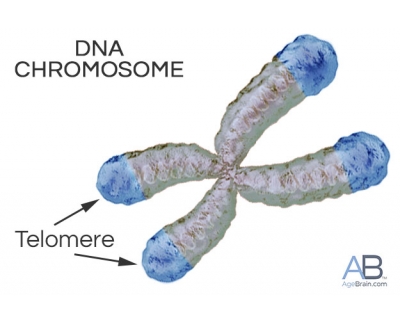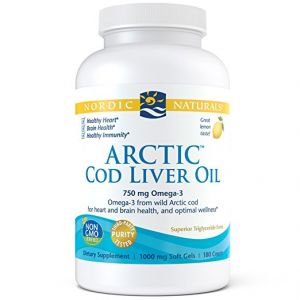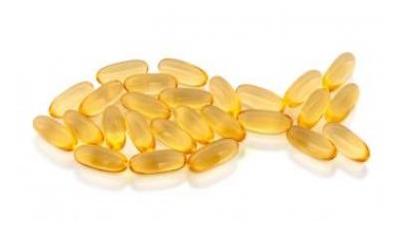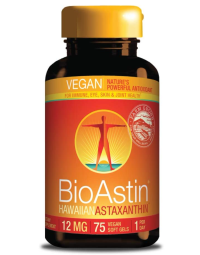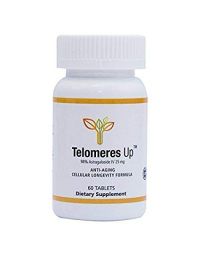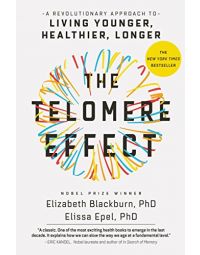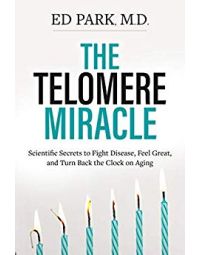Biological age is a better predictor of expected lifespan and potential dysfunction than standard chronological age. While maintaining a general healthy lifestyle is good for slowing the progression of biological age, no methods for definitively reversing biological age have been found yet. However, caloric restriction and certain supplements have been identified as promising agents for increasing longevity.

Exercises to Maintain Youthfulness
Primary non-molecular indicators of your biological age are your strength and fragility.1 Keeping your body fit is a key way to resisting damage and disease that can accelerate aging, as well as reducing factors that contribute to biological age such as blood pressure, cholesterol, and blood sugar. A study performed at King’s College in London on pairs of twins found that individuals who exercised 3 hours per week had significantly longer telomeres (caps at the ends of your DNA that protect it from degradation and shorten over time) than their sedentary siblings - equivalent to about 10 years younger in biological age.2


Avoid Environmental Toxins
As we go about our daily lives we come into contact with numerous chemicals and microbes in our food, water, air, and other things we interact with. Many of these can either directly damage your cells and DNA, or can cause inflammation and oxidative damage which in turn accelerate your cellular aging. While complete avoidance of harmful compounds is impossible, you can take steps to reduce excessive exposure:3
- Wear sunscreen (made with zinc oxide or titanium dioxide and not synthetic chemicals) or otherwise protect your skin from the sun when outdoors during the day, even when overcast, to avoid UV damage
- Use air and water filters in your home and office to remove impurities
- Bathe and cleanse your face regularly to remove toxins, pathogens, and irritants
- Brush and floss your teeth daily to reduce bacteria and prevent gum inflammation
- Avoid household cleaning and cosmetic products that contain harsh chemicals, potential carcinogens, or hormone mimetics
- Always use protective equipment if you handle harmful substances as part of your job


Good Nutrition Can Slow Aging
Eating well can also reduce inflammation and oxidative damage in your body. A study published by researchers in South Korea found that men and women who spend time examining the nutrition labels on the foods they purchase have a lower biological age than those who purchase food without consulting the labels.4
Look for foods that contain high amounts of fiber and healthy fats like omega-3 fatty acids. Fish, nuts, and beans are good choices.5 Eating lower amounts of sugar is good not only for preventing or managing diabetes, but also reducing AGEs in your bloodstream. AGEs - advanced glycation end-products - are proteins and lipids that have had sugar molecules attached to them, and are associated with accelerated aging.6 Foods rich in antioxidants, such as berries, citrus fruits, and vegetables, can also help reduce oxidation and inflammation in your body.7

Caloric Restriction Extends Lifespan
A phenomenon that has gained significant attention for its life-extending ability is caloric restriction. Multiple animal studies have demonstrated that limiting caloric intake while maintaining adequate nutrition can greatly extend their lifespans. While long-term clinical trials on human lifespan are difficult, initial studies have found that diets with around a 30% reduction in caloric intake are associated with reduced markers for disease and biological age.8,9 If you wish to try reducing your caloric intake for health benefits, make sure you work with a nutritionist to ensure you are still meeting your body’s nutritional needs.


Supplements That Increase Longevity
The cellular and molecular etiology of aging is still being intensely researched. While still not fully understood, there are a few natural compounds that have emerged that are able to elicit effects similar to caloric restriction. Though all slightly different, each seems to affect gene expression and enzyme activities that are involved in cellular metabolism, inflammation control, elimination of reactive oxygen species, and DNA synthesis in a manner that preserves telomere length.3 Here are a few that have shown promising results in age-reduction trials to date:
- Resveratrol10
- Alpha-lipoic acid11
- Astaxanthin12
- Astragalus root13
- NAD+ Therapy14
[1] Jylhäva J, Pedersen NL, Hägg S. 2017. “Biological Age Predictors.” EBioMedicine. Jul; 21:29-36. https://www.sciencedirect.com/science/article/pii/S2352396417301421
[2] Cherkas LF, Hunkin JL, Kato BS, Richards JB, Gardner JP, Surdulescu GL, Kimura M, Lu X, Spector TD, Aviv A. 2008. “The association between physical activity in leisure time and leukocyte telomere length.” Arch Intern Med. Jan 28; 168(2):154-158. https://www.ncbi.nlm.nih.gov/pubmed/18227361
[3] Kurzweil R; Grossman T. 2009. Transcend: Nine Steps to Living Well Forever. Rodale Inc., New York, NY.
[4] Han KT, Kim DW, Kim SJ, Kim SJ. 2018. “Biological Age Is Associated with the Active Use of Nutrition Data.” Int J Environ Res Public Health. Nov 1; 15(11):E2431. https://www.ncbi.nlm.nih.gov/pubmed/30388785
[5] Swanson D, Block R, Mousa SA. 2012. Adv Nutr. Jan; 3(1):1-7. “Omega-3 Fatty Acids EPA and DHA: Health Benefits Throughout Life.” https://www.ncbi.nlm.nih.gov/pmc/articles/PMC3262608/
[6] Fournet M, Bonté F, Desmoulière A. 2018. “Glycation Damage: A Possible Hub for Major Pathophysiological Disorders and Aging.” Aging Dis. Oct 1; 9(5):880-900. https://www.ncbi.nlm.nih.gov/pubmed/30271665
[7] Sadowska-Bartosz I, Bartosz G. 2014. “Effect of antioxidants supplementation on aging and longevity.” Biomed Res Int. 2014:404680. https://www.ncbi.nlm.nih.gov/pubmed/24783202
[8] Balasubramanian P, Howell PR, Anderson RM. 2017. “Aging and Caloric Restriction Research: A Biological Perspective With Translational Potential.” EBioMedicine. Jul; 21:37-44. https://www.ncbi.nlm.nih.gov/pubmed/28648985
[9] Roth GS, Lane MA, Ingram DK, Mattison JA, Elahi D, Tobin JD, Muller D, Metter EJ. 2002. ”Biomarkers of Caloric Restriction May Predict Longevity in Humans.” Science. 297:811. http://science.sciencemag.org/content/297/5582/811.long
[10] Salehi B, Mishra AP, Nigam M, Sener B, Kilic M, Sharifi-Rad M, Fokou PVT, Martins N, Sharifi-Rad J. 2018. “Resveratrol: A Double-Edged Sword in Health Benefits.” Biomedicines. Sep 9; 6(3):E91. https://www.ncbi.nlm.nih.gov/pmc/articles/PMC6164842/
[11] Park S, Karunakaran U, Jeoung NH, Jeon JH, Lee IK. 2014. “Physiological effect and therapeutic application of alpha lipoic acid.” Curr Med Chem. 21(32):3636-3645. http://www.eurekaselect.com/123157/article
[12] Kim SH, Kim H. 2018. “Inhibitory Effect of Astaxanthin on Oxidative Stress-Induced Mitochondrial Dysfunction-A Mini-Review.” Nutrients. Aug 21; 10(9):E1137. https://www.ncbi.nlm.nih.gov/pmc/articles/PMC6165470/
[13] Li X, Qu L, Dong Y, Han L, Liu E, Fang S, Zhang Y, Wang T. 2014. “A review of recent research progress on the astragalus genus.” Molecules. Nov 17; 19(11):18850-18880. https://www.mdpi.com/1420-3049/19/11/18850
[14] Chini CCS, Tarragó MG, Chini EN. NAD and the aging process: Role in life, death and everything in between. Mol Cell Endocrinol. 2017;455:62-74. doi:10.1016/j.mce.2016.11.003
-
Telomere Length
By Dr. KarenDecember 20, 2021 -
Biological Age Calculator
By Dr. AnnaMarch 8, 2022 -
Cod Liver Oil Benefits for Skin and Hair
March 8, 2022 -
Smile Line Fillers- Get Rid of Smile Lines
By Dr. KarenDecember 17, 2021
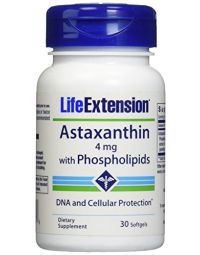
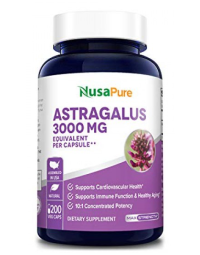
Search the blog
Article Categories
- All Articles (95)
- Rating Charts (1)
- Beauty & Skincare (17)
- FAQ (0)
- Hair Care (9)
- Health & Wellness (12)
- Anti-Aging (4)
- Kid's Health (0)
- Makeup (2)
- Men's Health (2)
- Oral Care (3)
- Sunscreen (7)
- Skin Tools & Treatments (10)
- Supplements (26)
- Videos (0)

